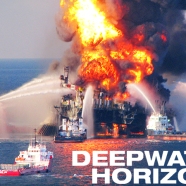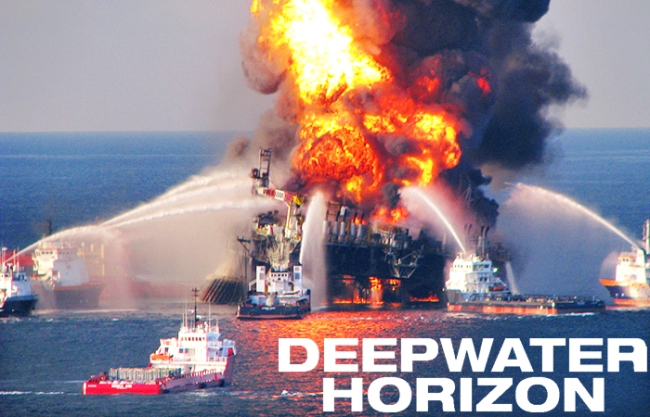 October
17
October
17
Tags
Deepwater Horizon (2016)

The moral of most man-made disaster films is that when civilisation disrespects nature the results can be catastrophic. Such films work best when we get both sides of the story: the why and what happened on humanity’s side, and nature’s response and effects on the other. It is clear that big money was involved in the 2010 oil-rig disaster that is examined in Deepwater Horizon (2016). In fact, there is so much at stake that the most significant part is left out of the film: the immediate and long term effects of the worst ecological disaster in American history.
Instead of the full story, the film offers as spectacular a dramatization of an oil-rig explosion that digital effects allow. The one-day plotline is simple and tight. It starts with a human interest back story of Mike Williams (Mark Wahlberg) having time off as boss of the Deepwater Horizon oil-rig, and his home life is sweet. Kissing wife and daughter goodbye, he heads off for a 21-day rig shift and on the helicopter ride we meet the British Petroleum bad guy executives. Tension lines are drawn immediately between Mike’s safety maintenance role and the ‘hurry up and make more money’ pressure from the company.
A great strength of this film is its ability to convey the dirty, claustrophobic and technology-dependent world of offshore oil-drilling. It is full of whiteboard diagram explanations, fear-inducing instrument dials with pointers drifting into red zones and grim-faced technicians who sense something calamitous is near. It also shows a grimy environment in which humans strip non-renewable resources from deep in our planet, all for profit. When poor safety and maintenance practices lead to the massive blowout and explosion, the film is at its best in portraying a veritable Dante’s Inferno on water. Hyper-realistic imaging conveys uncontrolled gushing oil, roaring flames, and flying bodies in ways unimaginable just a few years ago.
The camerawork draws you into the rig with a colour palette that leaves the taste of petroleum in your mouth, but the chaos during the worst of the explosion is beyond cinematic capture. For a large part of the film it is difficult to know what is happening, but that would have been the case when it really happened. If this film intended to be a tribute to the heroic crew, both those who survived and those who did not, then it falls short. Typecast performances are effective in distinguishing the good guys from the bad, but that is all. Nor does it acknowledge the devastation that followed the disaster. It does, however, fill a gap in public awareness about this catastrophic event and that is an achievement.

Director: Peter Berg
Stars: Mark Wahlberg, Kurt Russell, Douglas M. Griffin
